Researchers from across Europe come together to talk hog!
20th March 2019
Earlier this month we attended the 8th International Workshop of the European Hedgehog Research Group.
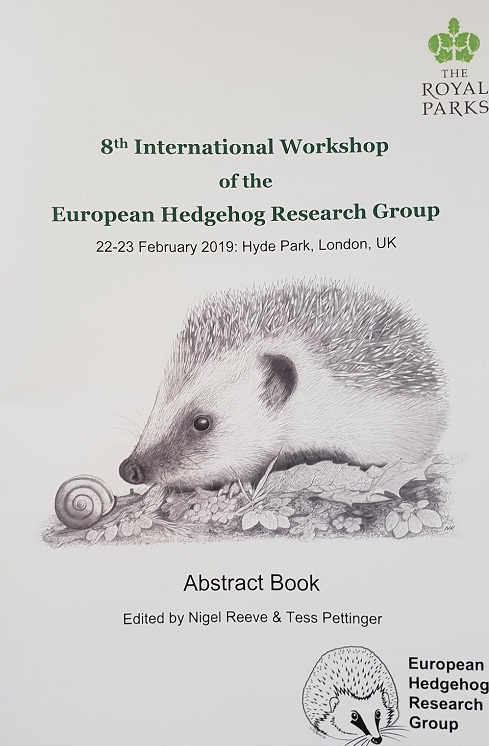
With over 100 members from a dozen or more countries, so many people have been dedicating their lives to researching the illusive hedgehog. This conference was a rare opportunities to get all these experts under one roof and talk about current research, as well as how we can work together to support hedgehog populations at a continental level.
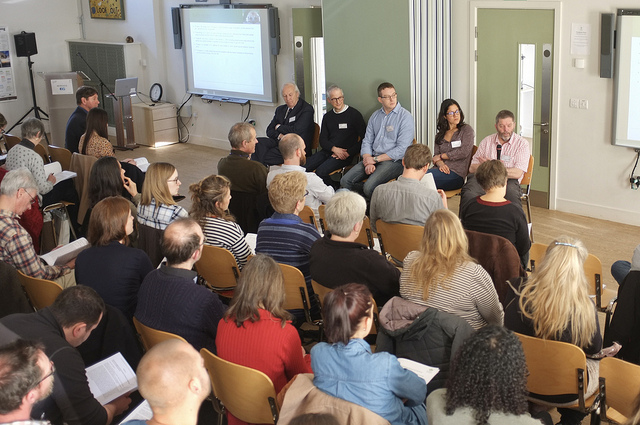
Credit; Hugh Warwick
The conference covered all areas of hedgehog ecology, researching their numbers and why they are in decline. Here are just some snippets of fascinating facts we discovered:
- Research by University of Reading found that hedgehogs were only present in around 22% of our countryside – a worrying figure! They also found that hedgehogs were absent from 71% of sites where there were no badgers, suggesting other factors are having a greater impact on where a hedgehog can survive.
- The Royal Parks are conserving the last of hedgehog population in central London – The Regent’s Park. An estimated 28 hedgehogs have made the park their home, and they are particularly vulnerable to predators, climate change and disturbance, so we need to keep a close eye on our spiky friends.
- The Institute of Zoology at ZSL, is using 100s of well placed camera traps to try to estimate hedgehog numbers in London – something never done before! They have found hedgehog strongholds in Hampstead Heath, Barnes, Richmond Park and other Greater London parks, which is great news. The team estimates <1000 hedgehogs to be in the entire Greater London area.
- Research by Nottingham Trent University told us that hedgehog numbers on the Isle of North Ronaldsay have remained at a steady 90-150 individuals since the 90s. They also found that the threat hedgehogs posed to ground nesting birds (by eating their eggs), is significantly reduced – with ‘hogs avoiding bird conservation areas on the island. Great news for their reputation!
- Research from Berlin, found that hedgehog populations in city parks were significantly effected by disturbance, with inner city festivals (however eco-friendly) caused hedgehogs to disperse wider, and disappear altogether.
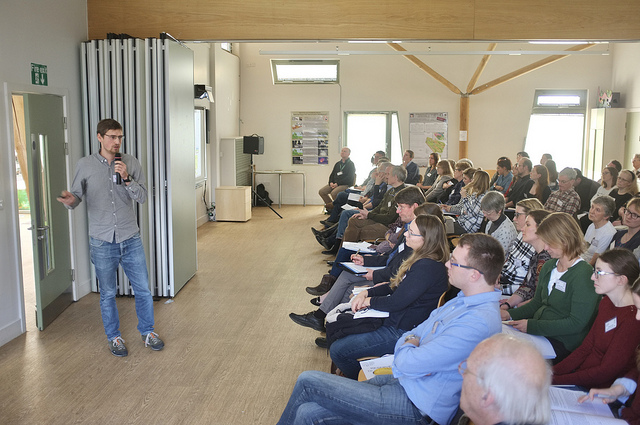
Credit; Hugh Warwick
- Hedgehogs in Switzerland have declined by a third over the past 25 years (similar to what we are seeing over here in the UK!) More hogs are being found in older areas of the cities, where greenspace is more abundant and there is less development, but with cities constantly changing, will this last?
- Researchers in the Czech Republic have found a small number of hybrid hedgehogs, where our West European ‘hog has bred with Northern White-breasted ‘hogs – a fascinating find!
- It’s estimated that >70,000 hedgehogs are in care each year. It’s unknown what happens to them after and treatment is often very varied across centres. With thousands of ‘hogs being taken in over winter, animal welfare is a concern, but also the money it costs to keep a hedgehog in care until Spring can be astronomical. Luckily, research from the University of Brighton has proved that hedgehogs can happily survive is release over winter – provided they have put on adequate weight and are released in mild conditions. Hopefully this will help to reduce the pressure on rehabilitators and allow more hedgehogs to return to their natural settings much quicker.
- We also found out from the team at Hartpury College that over hibernation hedgehogs move regularly from nest to nest, and it appears to be completely normal behaviour, so don’t worry if your hedgehog is on the move over winter!
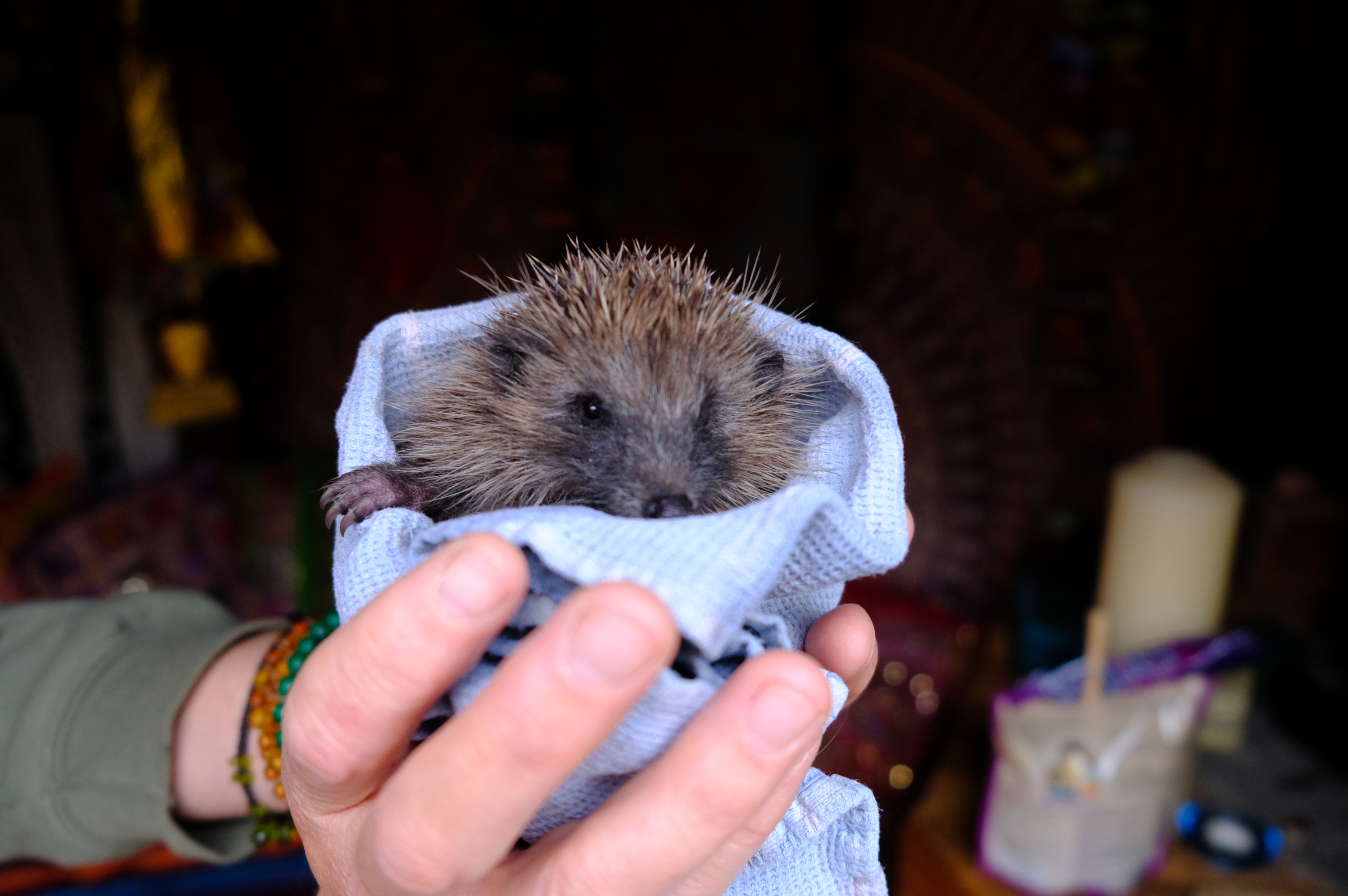
Thanks to everyone who is studying hedgehogs and helping to conserve this precious species. Hopefully, at the next meeting in a few years we will have some answers to some of the big questions about hedgehogs.
If you are a researcher or student studying hedgehogs and would like to join this group, feel free to get in touch at hedgehogs@ptes.org
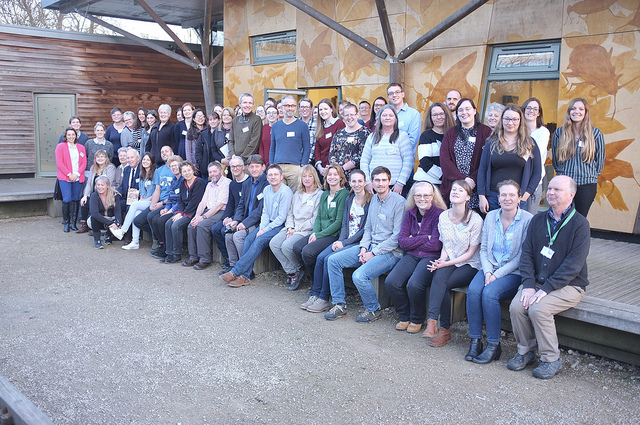
Credit; Hugh Warwick

